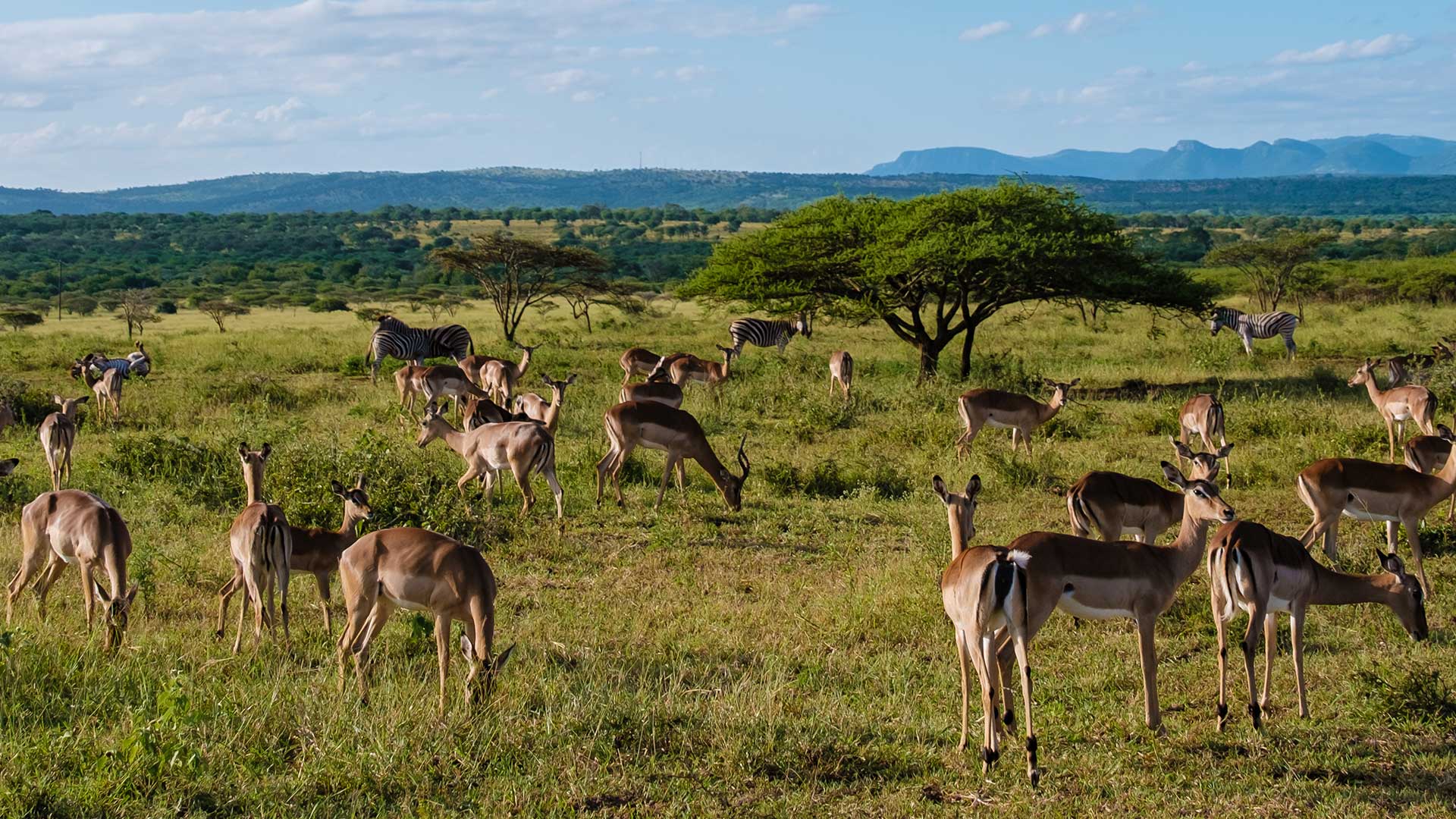Of all the African hunting countries, Tanzania is without a doubt the one that most stimulates the imagination of hunters and non-hunters alike. The greatest hunters of the twentieth century have celebrated Tanzania, its wildlife, and its hunting, as being among the most abundant on the African continent. Tanzania has long been considered the ultimate hunting safari destination in Africa. Fulfilling the dream of a traditional big game hunting safari, the likes of which so many hunters have read about continues to be a big draw to Tanzania's unspoiled wilderness.
Tanzania is home to a wide range of African wildlife and still allows the hunting of four of the famous Big Five species; Elephant, Lion, Buffalo (Syncerus Caffer), and Leopard. And it's no wonder with over 40 species to hunt, including some of the best big game hunting found in Africa.
The wildlife of Tanzania includes an enormous variety of potential hunting trophies such as Cape Eland, Roan Antelope, Roosevelt Sable, Greater Kudu, Lesser kudu, Coke's Hartebeest, Lichtenstein's Hartebeest, Western Hartebeest, Topi, Fringe Eared Oryx, Brindled or Nyasa or Blacked Tail Gnu, Common Waterbuck, Defassa Waterbuck, Situtunga, Common Reedbuck, Bohor Reedbuck, Impala, Grant's Gazelle, Robert's Gazelle, Thomson's Gazelle, Waller's Gazelle, Common Duiker, Peters' Duiker, Kirk Dik-Dik, Klipspringer, Oribi, Bushpig, Warthog, Hippos, and Crocodiles are also hunted.
Most of the Tanzanian terrain consists of shrub savannah, dry and green grassy savannah, broken up by areas of somewhat dense forest. In some regions, there are Sahelo-Sudanes zones such as in the northernmost part of Masa land which can be very dry and semi-desert-like. In the Selous region, some of the forests can be quite dense. The overall terrain is generally flat and offers little difficulty other than in the Masai country where some areas can be quite rugged.

Hunting in Tanzania is done on foot but given the vastness of the hunting concessions, it is often necessary to make long journeys by car.

Be conscious about what you use and leave during the African safari. No matter how small or insignificant the trash is, dispose of it properly to show respect for the local environment. There is no need to carry any items that are not needed on the safari, as you will increase the weight of your baggage and leave a footprint behind. Garbage and waste can be harmful to wildlife and must be disposed of properly.
Pack only the most essential items and avoid taking any unnecessary items during the safari. Always have a separate bag for later disposal of any rubbish and take it with you.
